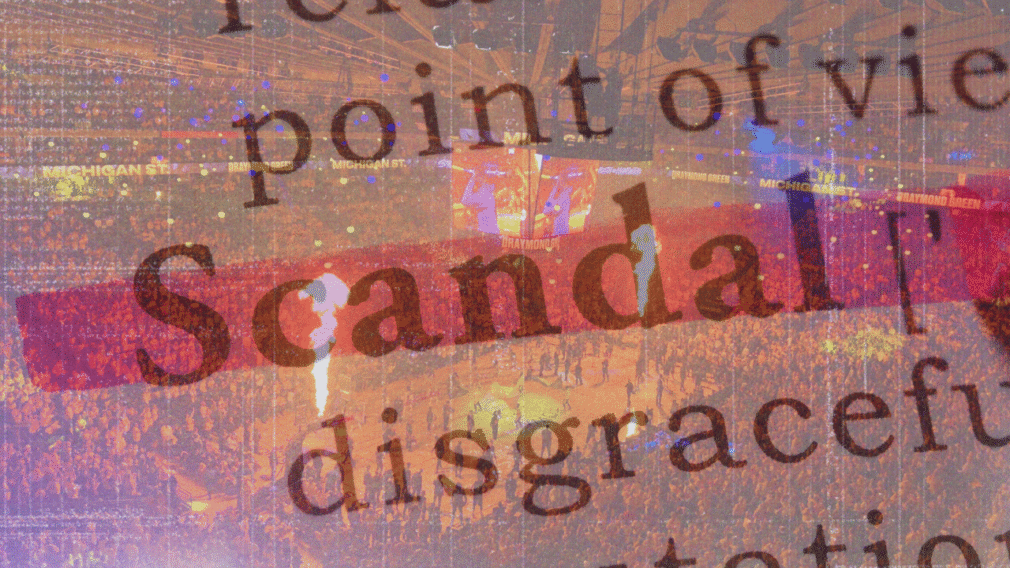Another NBA Gambling Scandal Rocks the Sports Betting Industry
Last night’s arrests of Portland Trail Blazers head coach and Hall of Famer Chauncey Billups and Miami Heat guard Terry Rozier instantly grabbed headlines on major news portals. The scale of the investigation and potential connections are staggering, sending shockwaves through the worlds of sports and betting.

What’s This All About?
As part of a wide-ranging FBI investigation into illegal gambling and ties to organized crime, including New York’s La Cosa Nostra, over 30 people were arrested across 11 states. For the sports world, three arrests stood out.
Let’s clear up a few things first. The FBI probe involves two separate but linked threads. The first concerns illegal sports betting, allegedly using insider info on NBA player injuries and absences to rig bets.
Terry Rozier is one of six charged in this thread. He’s accused of tipping off his friend Deniro Laster in early 2023, while with the Charlotte Hornets, that he’d miss a game in New Orleans due to a foot injury. Laster and his accomplices used this to pocket over $200,000 betting on Rozier’s under, as he left the court after 9 minutes and 34 seconds.
Shocking details also emerged about coach Damon Jones, who allegedly tried to obtain insider info and pass it to bettors. The case involved a specific player’s performance, and descriptions suggest it was LeBron James, who missed a Lakers game in February 2023 due to injury.
The operation investigated illegal bets on at least seven NBA games from December 2022 to March 2024, involving the Charlotte Hornets, Orlando Magic, Trail Blazers, Los Angeles Lakers, and Toronto Raptors. In three games, players intentionally benched themselves to help bettors win.
The second thread, with Chauncey Billups as its face, involves rigged high-stakes poker games. The indictment covers 31 people, focusing on fraud in games allegedly organized by members and associates of New York’s mafia families.
Billups was reportedly used as a “face card” – a famous name to lure wealthy victims into rigged games. The scheme allegedly netted over $7 million. Four New York mafia families: Bonanno, Gambino, Lucchese, and Genovese, were involved. Organizers took a cut of profits and used threats and violence to collect gambling debts.
What Do We Know So Far?
The accused face charges of conspiracy to commit bank and wire fraud, money laundering conspiracy, illegal gambling, and extortion.
Both Rozier and Billups were released from federal custody on Thursday after charges were filed. Rozier secured bail with his $6 million Florida home. Both must surrender their passports; Billups is barred from gambling and restricted to travel for New York court proceedings.
Lawyers for both Rozier and Billups dispute the charges. Billups’ attorney called it unbelievable that he’d risk his Hall of Fame legacy and freedom over card games. Rozier’s lawyer claims prosecutors rely on “spectacularly unreliable sources.”
The Atmosphere Thickens Around Sports Betting
For the sports betting industry and the sports world, this is another serious incident, following cases like Jontay Porter’s and Ippei Mizuhara’s (Shohei Ohtani’s interpreter), casting doubt on the integrity of competition and the role of betting.
The industry, facing image challenges in recent years, quickly responded.
AGA CEO Bill Miller issued a statement focusing on the “pervasive and predatory illegal market.” “Today’s revelations are a stark reminder of the pervasive and predatory illegal market, ensnaring countless individuals and operating in the shadows. It is important to recognize that the regulated legal market delivers transparency, oversight, and collaboration with authorities that assists in bringing these bad actors to light,” Miller said.
FanDuel’s spokesperson echoed this: “Today’s events are deeply disturbing, and should concern fans, athletes, and everyone who loves sports and values integrity and fair play. They also illustrate the stark contrast between legal and illegal betting markets.”
Anyone following the sports betting industry knows the NCAA’s priorities differ from those of the AGA and operators like FanDuel. NCAA President Charlie Baker reiterated the need to eliminate prop bets from operator offerings: “[…] we still need more states, regulators, and gaming companies to help in this effort by eliminating risky prop bets to reduce opportunities for manipulation.”
A Telling Moment
This scandal involving key sports figures erupts at a telling time for the industry. Just days ago, the NCAA allowed student-athletes to bet on professional sports. While sensible and fair in intent, regulating rather than blindly banning, it avoids encouraging participation but could prove image-wise problematic in the current climate.
NBA Commissioner Adam Silver, as if anticipating the events, spoke on The Pat McAfee Show about betting. He said current rules should limit players’ ability to manipulate games while protecting them from bettor abuse. The league highlights prop bets as particularly problematic, noting players on two-way contracts may be especially vulnerable. Silver believes the room for manipulation with prop bets is too large.
Such high-profile scandals place sports betting squarely in the criminal underworld, effectively undermining the industry’s image. There’s a growing push for stricter operator offerings. This happens amid the rapid rise of platforms like Kalshi and Polymarket, which recently signed a key deal with the NHL.
It’s obvious that in scandal situations, eyes turn to companies whose banners adorn sports arenas, but social pressure for overly restrictive regulations isn’t good news for betting or sports. In such moments, cool-headed perception is clouded, but one truth holds: restricting the legal industry won’t curb illegal operations – it’ll only make them harder to detect.
In the world of prediction markets, sweepstakes, social casinos, and offshore operators, imposing greater restrictions on the regulated industry isn’t a constructive solution. It’s the opposite.
Recommended
